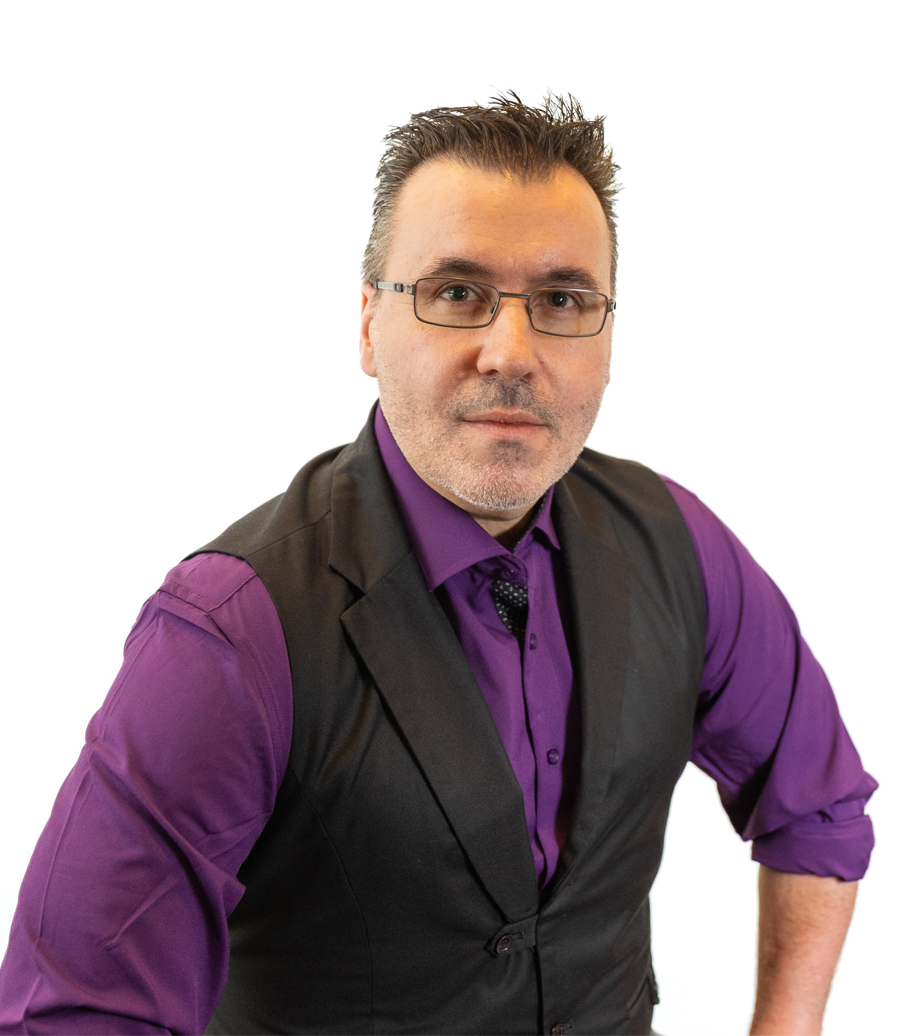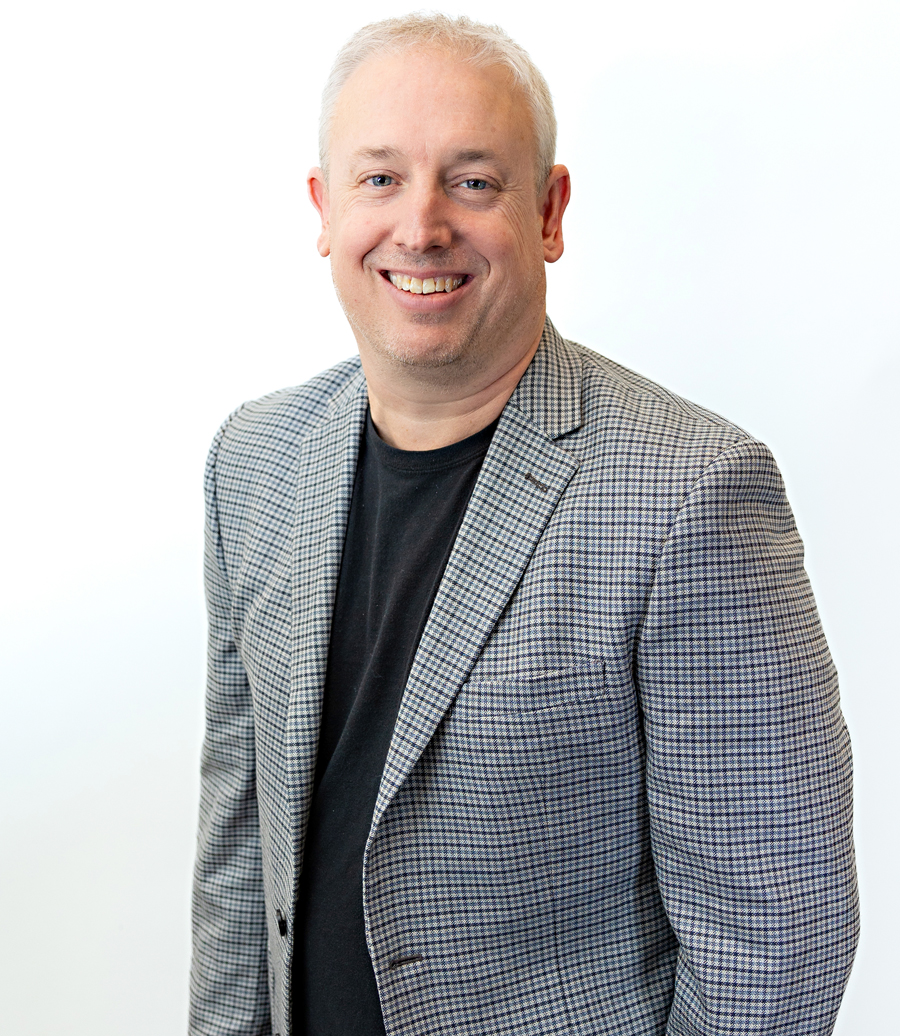Limo Anywhere is one of the industry’s most recognizable software vendors for a good reason: the 20-year-old company is among the largest and most popular. Their industry support has been consistent, from sponsoring association meetings and events to exhibiting at shows—usually with one of the busiest booths on the floor. It’s been an eventful few years for the software company as it was purchased by Fullsteam, a multi-industry payment and technology platform, and officially joined with longtime partner Addons under the Fullsteam umbrella. We spoke with President Sean Arena and Chief Innovation Officer Andrew Norman about the merger and what’s new with their product offerings.
 Limo Anywhere President Sean Arena
Limo Anywhere President Sean Arena
Chauffeur Driven: Can you explain what Limo Anywhere is?
Sean Arena: Limo Anywhere (LA) is the industry’s most widely used software for operators to run their business end-to-end. Whether it be ecommerce, dispatch, reservations, affiliate management, CRM, back-office, rate and revenue management, partner integrations, driver apps, or passenger booking tools, all are available through our software to help operators grow their business, run more efficiently, and take better care of their customers.
 Limo Anywhere Chief Innovation Officer Andrew Norman CD: What are the biggest issues that you’re trying to solve for the industry?
Limo Anywhere Chief Innovation Officer Andrew Norman CD: What are the biggest issues that you’re trying to solve for the industry?
SA: The biggest challenge is also our biggest opportunity, and that is to help customers actively embrace all that technology can do for them. Our industry has a lot of complexities, operationally: many manual steps, processes, logistical challenges around scheduling and dispatch, affiliate and reservation management, billing and payments, just to name a few. We continuously work to remove those hurdles by automating certain tasks and driving more intelligence into the workflow so that operators can make better decisions and increase productivity.
Another important pursuit is the ability to integrate with value-added partners to create a more seamless end-to-end experience. We work with GRiDD in terms of software interconnectivity, as well as third-party sources to ensure that trip requests and reservation information easily integrate with upstream corporate booking tools or other retail demand services—with a few new and exciting announcements on the horizon.
Andrew Norman: What I do every day is I think about how to democratize technology. Big businesses have huge IT budgets to solve complicated problems. We’re bringing technologies like that to the small operator and allowing them to consume it in a cost-effective way to have that large company appearance like that you would get with Amex, for example.
CD: How do you see our industry connecting to the hospitality universe?
SA: One incredible benefit of being part of the Fullsteam portfolio is access to over 75 adjacent software companies, many of which are synergistic with our business. Fullsteam has software for tour operators, event management companies, wedding planners, golf courses, wineries, restaurants, hoteliers, and automotive repair and maintenance shops, to name a few. If you think about the interconnections there, of how we can drive value through, for instance, a hotel’s property management system, being able to have our operators integrated with those hoteliers, to create a more seamless customer experience, it’s clearly an intuitive intersection and just one of the opportunities we’re pursuing.
CD: Andy, as the cofounder of Addons, can you talk about how your partnership with LA developed?
AN: Mike [Yingling, cofounder] and I got together around 2015 to look at doing some software in the transportation space. I owned a party bus fleet in Washington, D.C., and we built technology to automate our business. We showed local operators what we were doing and those guys, already customers of LA, said LA should do these types of things too.
I reached out to LA, and Addons became a development partner for their ecosystem. We started out solving individual problems and built a large portfolio of solutions to save time, money, and make them more efficient. When the Fullsteam acquisition happened, everybody said LA and Addons belonged together, and now we are one big happy family since March 2023.
CD: What are some frequently asked questions from operators?
AN: My title is Chief Innovation Officer, so my job is to have conversations with owners and ask how we can help them. They want to know what they can do better with automation, but they also learn from each other in our Facebook peer groups. So, it’s a collaborative back and forth about what we can solve for them and what they can help us solve from a product perspective. That’s why I use the term democratizing technology: We’re boiling the ocean, taking all the goodness out of it, and removing the pain of implementing the technology yourself.
CD: How do you retain the human aspect of customer service?
SA: For customers, it may seem that personalized, white glove service juxtaposed with advanced automation would be at odds with one another, but they’re actually symbiotic. If we can automate low-value tasks and provide better insights in automation, we can help operators focus on the high-value tasks that drive their business forward.
AN: That human handshake and face-to-face relationship knowing that Bob’s going to be on the other side of that phone when there’s an emergency are the kinds of bonds that are not technology replaceable. But the technology will help make sure that Bob doesn’t get into a problem in the first place. A human coupled with a good piece of AI to help them in their job is going to be the gold standard moving forward.
CD: What are some of the most popular features of LA?
AN: LQC (Lead Quote Close) is a CRM at its core. CRMs can be an endless pit of despair if you don’t have the technical capability, budget, and time to implement them properly. We created a process to take the best parts of the CRM that you’re going to need, such as retargeting, and built them directly into LA.
SA: Scheduled messaging automates communications for customers, which we’re going to be expanding to incorporate request for pay as well. It can be completely automated. Dynamic Manifest is another that we hear quite a bit about because it’s a time saver to be able to send a link once, and then have all the data constantly automated and automatically updated without having to send new manifests. We’ll also continue to innovate on the mobile-centric view of our product portfolio. The ability to efficiently pull up information and complete various tasks on your cellphone, laptop, or tablet clearly is an area that we believe we’ve been taking a mobile-first approach. That’s something we’ve heard customers say they appreciate.
AN: Customer Surveys has been the number one feature that most people adopt first for working on their social reputation. That whole social proof of concept is real. Sending a survey is not hard. Knowing when to and what medium to survey them in is more complicated, so we don’t barrage people. We’ve brought many customers up into the four- and five-star range. If you’re not managing that social proof side of your business, you need to do it now.
CD: You recently rolled out new package levels: LA Core, Plus, and Black. Can you tell us about them?
SA: To get your business up and running, you need the core capabilities within our software, which is aptly named LA Core. Everything you need to run the fundamentals of your business, such as dispatch, reservation management, reporting and analytics, driver management, affiliate management, online booking tools, payments, and back office, etc. are included in LA Core, and that’s what most companies have today from a subscription standpoint.
We have also folded in a few additional capabilities from Addons into our Core solution set. Our two new package levels incorporate a lot of the Addons technologies and capabilities to allow customers to grow and scale their businesses as their needs become more advanced. In the middle tier, LA Plus, you have more automation needs like the ability to integrate QuickBooks right into your business, automated driver wakeup calls, passenger surveys, and our custom booking portals, for example.
AN: Addons was traditionally a la carte. Our customers told us that they wanted some price stability and did not want to worry about what an individual thing costs and this was our answer to that request from the market. So, with LA Plus you get Surveys, Passenger Link, and all these things that a lot of our customers want. And then when you get to the Black level, it’s all you can eat, and it’s based on the size of the operator. It’s drastically less expensive now, and we encourage operators to try out the different technology available.
SA: There’s certainly a value-added component to bundling. What we wanted to do is simplify the buying process for our customers because it’s daunting when you have 25+ point solutions at different models and prices. When you get to LA Black, you’ll find components like Auto-Farm where it can handle that affiliate work for you, or Virtual Dispatcher, which can be the eyes on your screen for you and raise potential concerns. The sophistication and automation grow as you scale into the higher tiers, but we’ve made it a simplified buying process for our customers so they can realize the value in any one of those tiers.
CD: How have customers reacted?
SA: Very positively. We soft-launched the new packages in Q4 last year just to make sure that we were ironing out any kinks, but we’re going to promote them more aggressively in the coming weeks. It’s a simplified buying process, but as you continue to evolve your business, new types of capabilities like payroll integration, which is another feature that we’re working on with ADP, may be valued. A two-car operator might not need it, but if you have 50 drivers, it will likely become very important to you.
AN: I spoke with an owner who spent a couple days every two weeks just running payroll, which is crazy. Shouldn’t you have a data flow from LA? Imagine having two full days of their week back: that’s 20 percent of their time. Also, we wanted to remove the barrier for people to try new things. We want customers to consume everything and drive that value in their package, but we’ve removed the risk profile for them to do it. They don’t have to pay for it to try it.
SA: And the packages aren’t static. There are several solutions coming out that are going to be available with these new tiers, and they will continue to expand over time. Thus far our customers have been very receptive to what we’ve done because it’s made their lives easier, and it’s allowed them to try new capabilities at no risk.
CD: What is the most important thing that you want our readers to know about the company?
SA: We’re pushing the envelope in new and impactful ways to help operators grow their business. With the rollout of our new package levels, we’re positioned to help customers of any shape or size succeed—now, and well into the future.
AN: Our culture is just hyper-focused on the customer from every aspect. We listen to customers and how their businesses are evolving and solving those challenges. We don’t get it right all the time; nobody does, but at the end of the day, we value that customer relationship and we’re going to make sure that we do everything in our power to make our customers successful. It’s no more complicated than that. I think we have the most complete solution in the marketplace, and we’re going to widen that gap as we go into 2024. [CD0224]
Q&A With Sean Arena & Andrew Norman of Limo Anywhere
- Details

